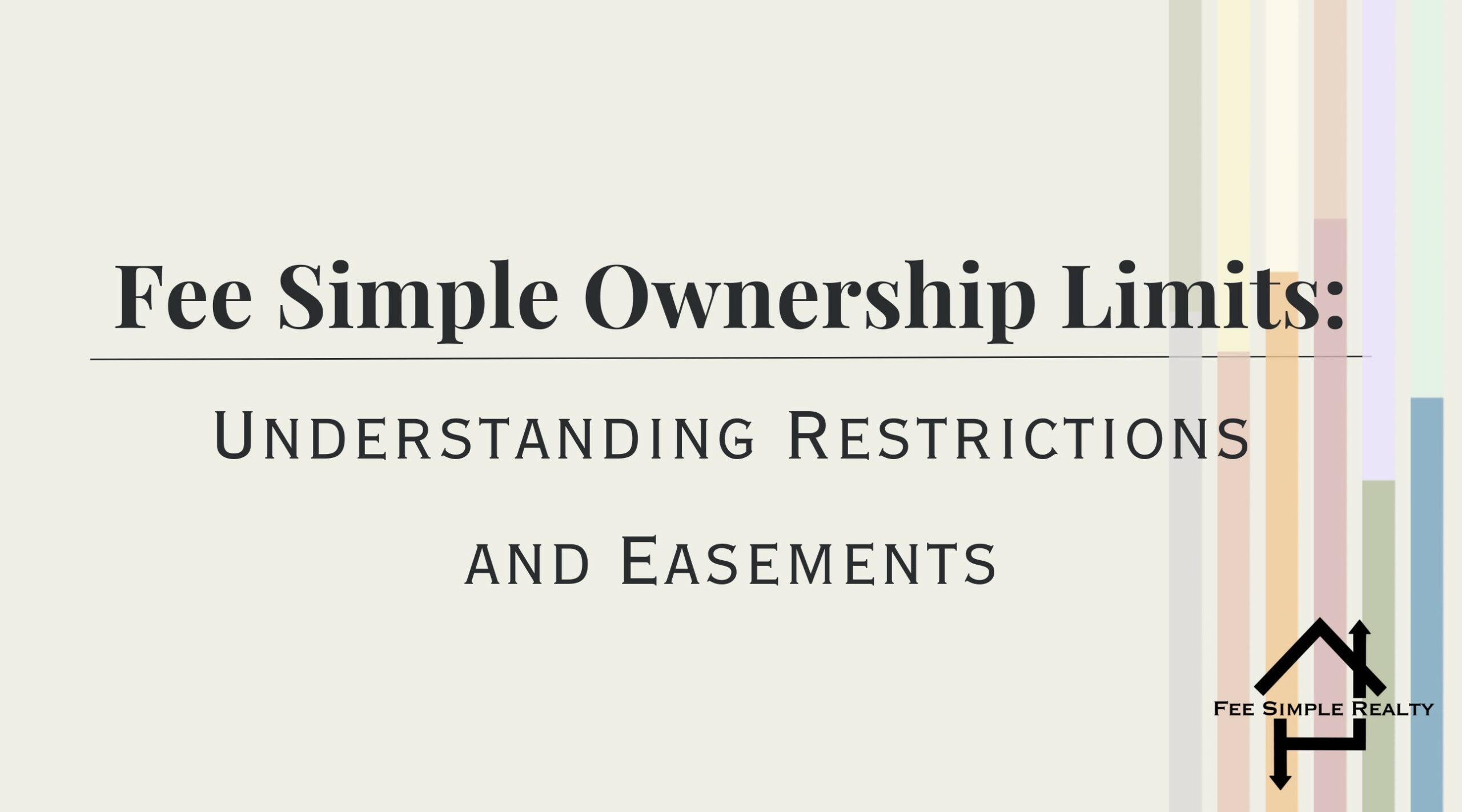Fee Simple Ownership Limits: Understanding Restrictions and Easements
Ever imagined owning land where you can freely execute any vision? Before you secure your property deeds, it’s important to grasp the nuances of fee simple ownership. In real estate, fee simple represents the most comprehensive ownership form, offering complete control over the land and any structures on it. But even this extensive ownership comes with certain limitations. Fee Simple Ownership Limits:
Navigating Restrictions and Easements
Fee simple ownership, the most comprehensive form of land ownership, often involves legal limitations such as restrictions and easements. These dictate what you can and cannot do with your property. Whether it’s zoning laws from local governments or homeowner association rules, these restrictions are crucial for property management. Similarly, easements might grant others access to parts of your land for specific purposes, affecting how you utilize your space.
Easements may permit others to use parts of your land for specific purposes, such as allowing utility companies access to underground pipes or neighbors the right to pass through to reach their own property. Despite maintaining ownership, these easements can limit how you use your land.
Understanding Your Land’s Legal Boundaries
To adeptly manage your property rights, it’s crucial to understand the specifics of any restrictions and easements tied to your land. Here’s a breakdown to help:
- Common Restrictions and Easements: Familiarize yourself with real-life scenarios such as conservation easements or shared driveways. Understanding these can clarify how such legal stipulations impact property usage.
- Navigating Legal Documentation: Learn to identify and interpret essential documents like property deeds, titles, and survey maps. Simplifying terms like “covenant” and “right-of-way” can make complex legal concepts more approachable.
- Implications for Property Value: Consider how easements and restrictions could influence your property’s marketability and resale value. Limitations on development potential, for instance, might diminish the property’s appeal to prospective buyers.
- Mitigation Strategies: Explore strategies to mitigate the effects of these legal constraints. This might include consulting with legal professionals to renegotiate easement terms or seeking exemptions from zoning laws.
- Future Considerations: Stay proactive about potential changes affecting your property. Keeping abreast of local zoning updates or upcoming infrastructure projects could be crucial in maintaining your property’s value and usability.
Lighter Note
To end on a lighter note, here’s a quick joke: Why did the scarecrow win an award? Because he was outstanding in his field! Similarly, gaining a comprehensive understanding of fee simple ownership can make you a standout property owner, well-prepared to navigate its complexities.
Contact us today or visit our Instagram | Facebook .
